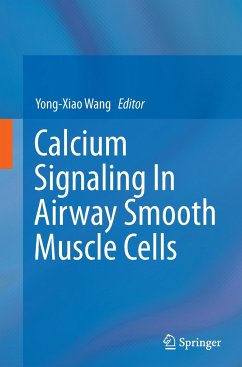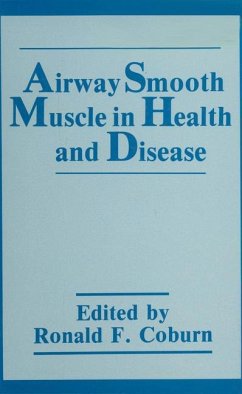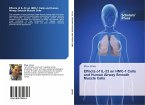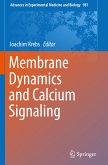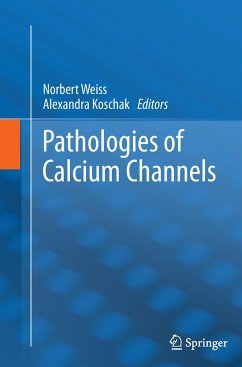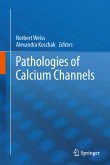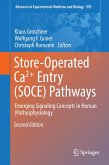This book explores the role calcium signaling plays in cellular responses in almost all types of cells including airway smooth muscle cells. This universal signaling may result from extracellular calcium influx and/or intracellular calcium release, which are precisely controlled and regulated by ion channels, exchangers and/or transporters on the plasmalemmal or sarcoplasmic reticulum membrane. First, several chapters detail calcium release channels (ryanodine receptors and inositol trisphosphate receptors), voltage-dependent potassium channels, transient receptor potential channels, Orai channels, calcium-activated potassium channels, and calcium-activated chloride channels. Well-characterized sodium-calcium exchangers, voltage-dependent calcium channels, and calcium pumps are described also in depth over many chapters.
Ca2+ signaling can be expressed in Ca2+ sparks, waves, oscillations, and global changes in intracellular Ca2+ concentration. Calcium in subcellular compartments (cytosol, sarcoplasmic reticulum, mitochondria, and caveolae) also exhibit dynamic crosstalk. Many molecules including FK506 binding proteins, cyclic adenosine diphosphate ribose, reactive oxygen species, RhoA kinases, caveolin and integrins can modify and induce spatial, temporal and compartmental variations of calcium signaling. In addition, calcium signaling can exhibit sex hormone- and age-dependent changes. A number of chapters are dedicated to covering these diverse formats, spatiotemporal characteristics, multifaceted network and mathematical modeling of Ca2+ signaling.
Neurotransmitters, hormones, growth factors, inflammatory cytokines, and other stimuli may lead to multiple cellular responses by inducing Ca2+ signaling in airway smooth muscle cells. Increasing evidence suggests that Ca2+ pumps and canonical transient receptor potential channels are essential for airway smooth muscle remodeling. Accordingly, several chapters summarize recent advances inthe studies of the key role of calcium signaling in physiological cellular responses as well as the development of asthma, chronic obstructive pulmonary disease and other respiratory disorders.
Ca2+ signaling can be expressed in Ca2+ sparks, waves, oscillations, and global changes in intracellular Ca2+ concentration. Calcium in subcellular compartments (cytosol, sarcoplasmic reticulum, mitochondria, and caveolae) also exhibit dynamic crosstalk. Many molecules including FK506 binding proteins, cyclic adenosine diphosphate ribose, reactive oxygen species, RhoA kinases, caveolin and integrins can modify and induce spatial, temporal and compartmental variations of calcium signaling. In addition, calcium signaling can exhibit sex hormone- and age-dependent changes. A number of chapters are dedicated to covering these diverse formats, spatiotemporal characteristics, multifaceted network and mathematical modeling of Ca2+ signaling.
Neurotransmitters, hormones, growth factors, inflammatory cytokines, and other stimuli may lead to multiple cellular responses by inducing Ca2+ signaling in airway smooth muscle cells. Increasing evidence suggests that Ca2+ pumps and canonical transient receptor potential channels are essential for airway smooth muscle remodeling. Accordingly, several chapters summarize recent advances inthe studies of the key role of calcium signaling in physiological cellular responses as well as the development of asthma, chronic obstructive pulmonary disease and other respiratory disorders.

